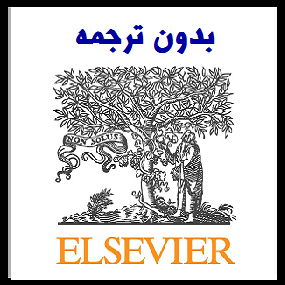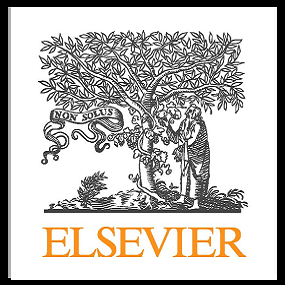مقاله انگلیسی پیش بینی نتیجه درمان در افسردگی اضطراب سندرومی با حافظه کلامی (2020 الزویر)


| عنوان فارسی مقاله | حافظه کلامی نتیجه درمان در افسردگی اضطراب سندرومی را پیش بینی می کند: یک گزارش مطالعه بین المللی برای پیش بینی بهینه سازی نتایج درمانی افسردگی (iSPOT-D) |
| عنوان انگلیسی مقاله | Verbal memory predicts treatment outcome in syndromal anxious depression: An iSPOT-D report |
| ترجمه کامپیوتری فهرست مطالب | طرح کلی نکات برجسته چکیده کلید واژه ها 1. معرفی 2. روش 3. نتایج 4. بحث سپاسگزاریها منابع مالی بیانیه کمک به نویسندگی CRediT اعلامیه رقابت بهره نقش منبع تأمین بودجه ضمیمه. مواد تکمیلی داده های تحقیق منابع |
| فهرست مطالب | Outline Highlights Abstract Keywords 1. Introduction 2. Method 3. Results 4. Discussion Acknowledgements Funding CRediT authorship contribution statement Declaration of Competing Interest Role of funding source Appendix. Supplementary materials Research Data References |
| نمونه ترجمه کامپیوتری | چکیده
زمینه مواد و روش ها 1. مقدمه اختلالات اضطرابی و سطح قابل توجهی از نظر بالینی علائم اضطراب تقریباً در نیمی از جمعیت اختلال افسردگی اساسی (MDD) اتفاق می افتد (گاسپرس و دیگران ، 2018 ، Ionescu و همکاران ، 2013a). این اشکال از افسردگی اضطراب معمولاً به صورت سندرمال تعریف می شود (یعنی تشخیص MDD و اختلال اضطراب اضطراب) یا با استفاده از معیارهای HRSD (یعنی تشخیص MDD و نمره ضریب اضطراب / جبران HRSD17 از 7 پوند ؛ Braund et al.، 2019، Ionescu et Al.، 2013a). در مقایسه با جمعیت تنها افسرده ، جمعیت افسرده مضطرب با بیماری شدیدتر و نتایج درمان ضعیف تر ضد افسردگی همراه بوده است (Ionescu و همکاران ، 2013 ، Ionescu و همکاران ، 2014 ، کسلر و همکاران ، 2015). با این حال ، در حالی که بسیاری از عملکرد بالینی و عصبی شناختی آنها شناخته شده است (Ionescu و همکاران ، 2013a ، b) نتایج متفاوتی در مورد عملکرد شناختی آنها و اینکه آیا می تواند نتیجه درمان ضد افسردگی را پیش بینی کند ، یافت شده است (Basso et al.، 2007، Lyche et al. . ، 2010) توجه؛ (این ترجمه توسط نرم افزار انجام شده و ویرایش نشده است و احتمال وجود اشتباه در آن وجود دارد. در صورت ثبت سفارش، ترجمه توسط مترجمین مجرب انجام خواهد شد. برای مشاهده نمونه ترجمه های تخصصی و اخیر مترجمین جهت اطمینان از کیفیت ترجمه، اینجا کلیک نمایید.) |
| نمونه مقاله انگلیسی |
Abstract BackgroundMajor Depressive Disorder (MDD), anxiety disorders, and high levels of anxious symptoms are associated with impaired cognitive functioning. However, little is known of how cognitive functioning is impaired in people with anxious depression. Here, we compared cognitive functioning between people with anxious depression, non-anxious depression, and healthy controls. We also tested whether anxious depression moderated the relationship between cognitive functioning and treatment outcome. Methods1008 adults with MDD and 336 healthy controls completed IntegNeuro: a computerized cognitive functioning test battery. Participants were then randomised to one of three antidepressants and reassessed at 8 weeks using the 17-item Hamilton Depression Rating Scale (HRSD17) and the 16-Item Quick Inventory of Depressive Symptomatology-Self-Rated for remission and response. Syndromal anxious depression was defined as MDD with a comorbid anxiety disorder. HRSD anxious depression was defined as MDD with a comorbid HRSD17 anxiety/somatisation factor score ≥ 7. 1.Introduction Anxiety disorders and clinically significant levels of anxiety symptoms co-occur in approximately half the Major Depressive Disorder (MDD) population (Gaspersz et al., 2018, Ionescu et al., 2013a). These forms of anxious depression are commonly defined either syndromally (i.e., cooccurring MDD and anxiety disorder diagnoses) or using HRSD criteria (i.e., MDD diagnosis and an HRSD17 anxiety/somatisation factor score of ≥ 7; Braund et al., 2019, Ionescu et al., 2013a). Compared to the depressed only population, the anxious depressed population has been associated with more severe illness and poorer antidepressant treatment outcomes (Ionescu et al., 2013, Ionescu et al., 2014, Kessler et al., 2015). However, while much is known of their clinical and neurobiological functioning (Ionescu et al., 2013a,b) mixed results have been found regarding their cognitive functioning and whether it can predict antidepressant treatment outcome (Basso et al., 2007, Lyche et al., 2010). |
| سال انتشار | 2020 |
| ناشر | الزویر (ساینس دایرکت) (Elsevier – Science Direct) |
| مجله | Journal of Affective Disorders / مجله اختلالات عاطفی |
| نوع مقاله | ISI |
| کلمات کلیدی | اضطراب افسردگی افسردگی اضطراب شناخت iSPOT-D ضد افسردگی |
| کلمات کلیدی انگلیسی |
Anxiety
Depression
Anxious depression
Cognition
iSPOT-D
Antidepressant
|
| صفحات مقاله انگلیسی | 9 |
| مناسب برای رشته | روانشناسی |
| مناسب برای گرایش | روانشناسی عمومی، روانشناسی بالینی |
| توضحیات | این مقاله انگلیسی جدید بوده و تا کنون ترجمه نشده است. جهت ثبت سفارش ترجمه از لینکهای زیر استفاده نمایید. |
| دانلود مقاله انگلیسی | ○ دانلود رایگان مقاله انگلیسی با فرمت pdf (کلیک کنید) |
| سفارش ترجمه فارسی | ○ سفارش انجام ترجمه و تایپ این مقاله (کلیک کنید) |
| سایر مقالات این رشته | ○ مشاهده سایر مقالات رشته روانشناسی (کلیک کنید) |



